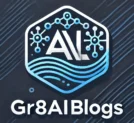“`html
AI’s Impact on the Future of Education and Career Paths
As we dive deeper into the 21st century, the integration of artificial intelligence (AI) into various aspects of our lives becomes increasingly pronounced. One area where this technology is particularly impactful is education, specifically in shaping career paths for students. The interplay between advanced AI tools and traditional classroom environments raises essential questions about the future of work and learning. This article explores the transformative role of AI in education, providing an overview of how it influences career trajectories and equipping students for a rapidly changing job market.
The Role of AI in Shaping Modern Classrooms
In today’s educational landscape, AI technologies are no longer mere abstractions—they are tangible tools reshaping how students learn and prepare for their careers. Here are some ways AI contributes to modern classrooms:
- Personalized Learning: AI enables tailored learning experiences by analyzing student performance and adapting content to unique learning styles. This personalization helps students grasp complex concepts at their own pace.
- Career Assessment Tools: Various AI-driven platforms assist students in identifying potential career paths based on their skills, interests, and market trends, facilitating informed decision-making.
- Enhanced Engagement: Interactive AI tools, such as virtual reality (VR) and augmented reality (AR), keep students engaged by providing immersive learning experiences that traditional methods cannot match.
These developments present both opportunities and challenges, prompting us to reflect on what the future of education might hold.
Preparing Students for an AI-Influenced Workforce
As AI becomes pervasive in industries, it is essential for educational institutions to equip students with the necessary skills to thrive in this landscape. Here are several ways educators can prepare students:
- Integrating AI Literacy: Teaching students about AI technology—its benefits, limitations, and ethics—is crucial for helping them navigate a future intertwined with AI.
- Fostering Creativity: While AI excels at data processing, creativity remains a uniquely human trait. Encouraging creative thinking ensures students can differentiate themselves in a competitive job market.
- Emphasizing Soft Skills: Communication, collaboration, and emotional intelligence will be vital as AI automates routine tasks. Schools must prioritize these skills alongside technical training.
In doing so, they create a workforce capable of leveraging AI rather than competing against it.
Students’ Perspectives: Inspiration and Apprehension
The integration of AI into education prompts mixed emotions among students. Many express a sense of wonder and excitement about the possibilities that await them, while others exhibit uncertainty about their future careers.
The Enthusiastic Learners
For some students, the use of AI technologies in the classroom opens doors to opportunities previously unimaginable. They feel inspired to explore fields like data science, robotics, or AI ethics, motivated by the promise of innovative career paths. The incorporation of AI helps them realize that technology can not only enhance learning but also facilitate impressive career trajectories.
The Cautious Optimists
Conversely, some students display reluctance and concern regarding automation’s impact on employment. They often contemplate:
- Will AI replace human jobs?
- How can I ensure my career remains relevant in an AI-driven world?
These concerns are valid, and it highlights the importance of education focusing on the symbiosis between humans and machines. By acknowledging these fears and addressing them through education, we can cultivate a generation of adaptable and forward-thinking individuals.
AI as a Collaborative Partner in Education
Rather than viewing AI purely as a tool, it is more appropriate to think of AI as a collaborative partner in the educational process. Teachers and AI technologies can work hand-in-hand to enrich students’ learning experiences and career preparedness.
- Data-Driven Insights: AI can analyze student performance data to help educators identify areas that need attention, ensuring no student falls through the cracks.
- Differentiated Instruction: AI provides insights that allow teachers to tailor lessons according to the varied learning needs and preferences of their students.
- Empowered Educators: With AI behind the scenes managing administrative tasks, teachers can focus more on mentorship and fostering relationships with their students.
In this way, the future classroom thrives on collaboration, warranting a model that positions educators and AI as teammates rather than adversaries.
The Road Ahead: Embracing Change
The convergence of education, AI, and evolving career paths presents formidable challenges and exciting possibilities. Preparing students effectively for this brave new world necessitates embracing change while fostering an atmosphere of creativity and adaptability. Educational institutions must:
- Invest in Technology and Training: Schools need funding and resources to integrate AI into curricula and ensure educators are equipped with the necessary training to teach AI-related topics.
- Build Partnerships with Industry: Collaborating with tech companies and industry professionals can inspire pragmatic learning experiences and offer students real-world insights.
- Encourage Lifelong Learning: Students must understand that education is an ongoing process, and staying updated on technology advancements will be essential throughout their careers.
As we together navigate the uncertainties of the future, fostering an environment open to innovation and exploration will be crucial.
Conclusion
As AI continues to shape the educational landscape and influence career trajectories, it is paramount to cultivate a culture that balances technological advancements with human creativity. By integrating AI literacy within the classroom, prioritizing soft skills, and embracing change, we can successfully prepare students for the rich and complex tapestry of tomorrow’s workforce.
To learn more about how AI is influencing education and potentially enhancing someday success, check out resources such as Kensington Guest Suites for a diverse range of perspectives and opportunities in this ever-evolving field.
The way forward is both intriguing and uncertain, but with an open mind and a commitment to learning, the future can indeed be bright for both students and educators alike.
“`

